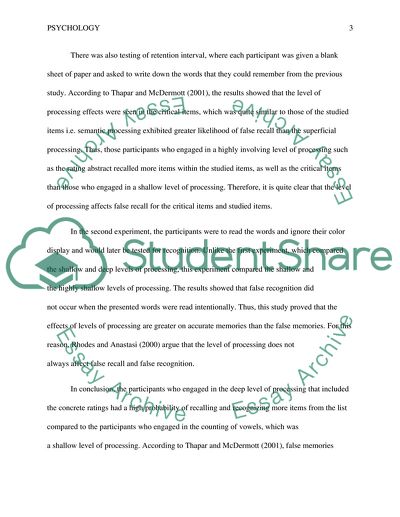Does level of processing affect false recall and false recognition Outline. Retrieved from https://studentshare.org/psychology/1583027-does-level-of-processing-affect-false-recall-and-false-recognition
Does Level of Processing Affect False Recall and False Recognition Outline. https://studentshare.org/psychology/1583027-does-level-of-processing-affect-false-recall-and-false-recognition.


